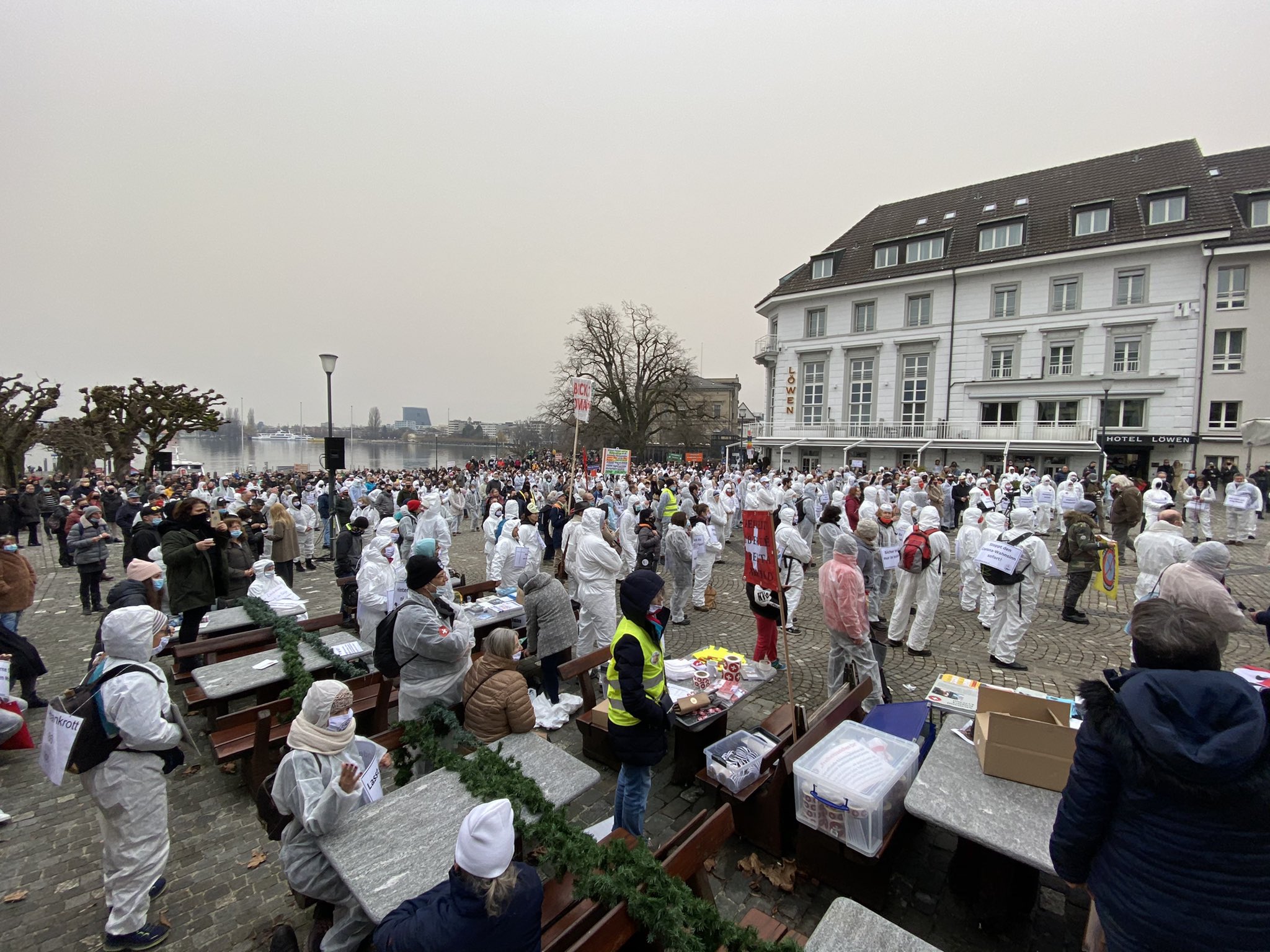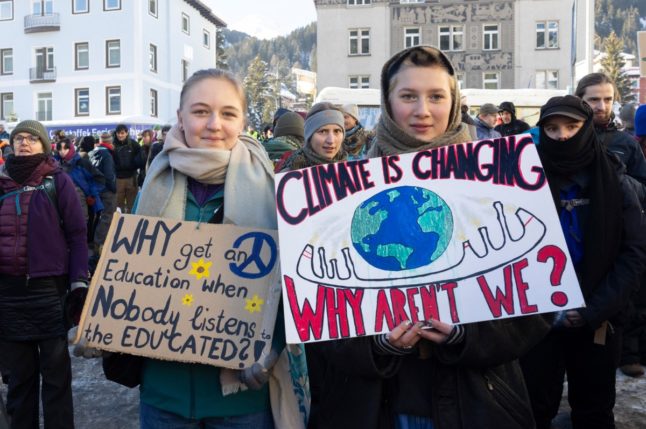The demonstration was similar to a rally a week ago in Vienna, where thousands of protesters opposed to Austria's lockdown and called on the government to resign.
Though Switzerland’s restrictions have been less severe than those in Germany, Austria or Italy – restaurants and non-essential shops are closed but ski areas are open – there is still noticeable opposition.
In Zug, police watched but did not intervene as a group of protesters marched from the train station to the centre of the lakeside city, known its attractive tax rates.
Marchers wore placards that read “Wearing a mask is modern slavery”. A loudspeaker droned, “Closeness is dangerous” and “Denounce those you love”.
Friedlicher Protest in Zug/ZG, Switzerland. Vielen Dank an die Zuger Kantonspolizei für ihre besonnene Präsenz. pic.twitter.com/TpsrMdRL60
— tinu66 (@tinu661) February 6, 2021
Schwurblerprotest in Zug #ZG0602
Der sogenannte “Stille Protest” mit mindestens 600 Teilnehmenden.Ein paar der Transparente werfen Fragen auf pic.twitter.com/KmVTeTXZZQ
— element (@__investigate__) February 6, 2021
“I want to make a statement, that the citizens are the ones who are in control, and the state should be there to serve its citizens,” one man told Reuters, without giving his name.
A woman said she was there for the next generation.
“I'm a grandmother,” she told the news agency. “I don't want my grandchildren to grow up in a world where so much is forbidden.”
Earlier this week, coronavirus sceptics in Switzerland were refusing to pay their mandatory TV licence fees due to the media's coverage of the pandemic.
Switzerland's health minister Alain Berset said last week the government planned to keep existing restrictions in place until at least the end of the month, and potentially longer, as more infectious coronavirus variants spread.
READ ALSO: Swiss Health Minister: 'No relaxation of coronavirus measures in February'
COVID cases in Switzerland have dropped since hitting their peak late last year, though there were more than 1,500 new infections on Friday. Since the start of the pandemic, more than 530,000 Swiss have been infected and almost 9,000 have died.



 Please whitelist us to continue reading.
Please whitelist us to continue reading.
Member comments